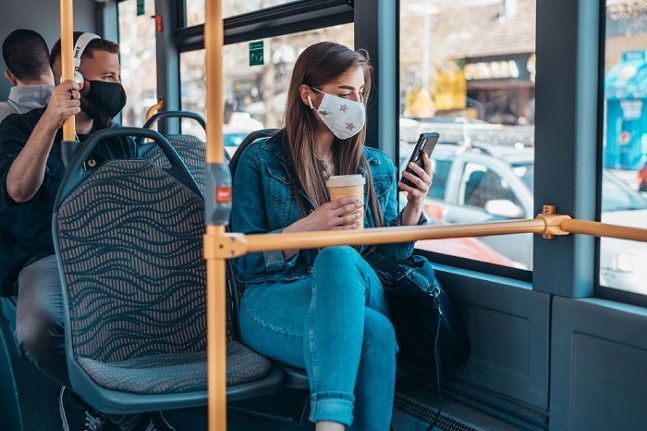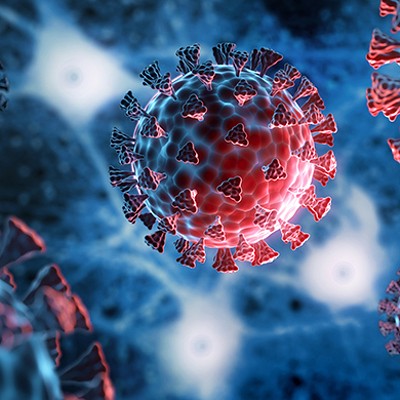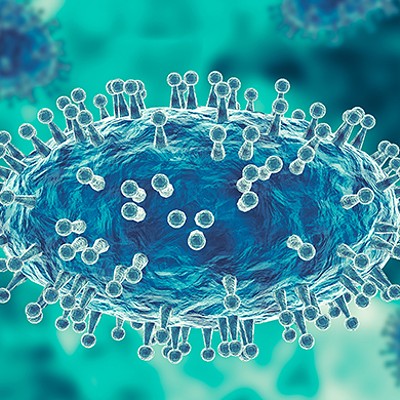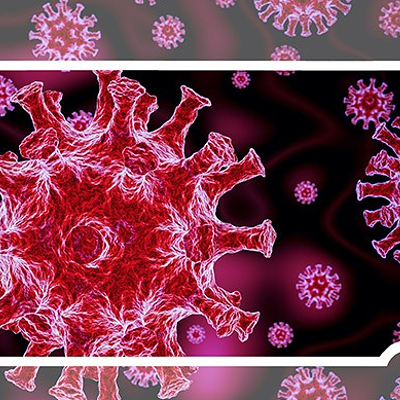As much of the United States experiences a late summer surge of COVID-19, we can expect the same, says Dr. LuAnn Brink, chief epidemiologist at the Allegheny County Health Department.
“When fall comes, when we begin to gather in school, and then for the holidays, we see a surge every year,” Brink tells Pittsburgh City Paper. “It's how winter respiratory viruses exist.”
The ACHD’s wastewater surveillance data have already shown an uptick in cases since mid-June, which Brink attributes in part to high school band and preseason sports. The department reports that, between July 16 and Aug. 12, they saw over 680 cases of infection.
Since the expiration of the federal COVID-19 Public Health Emergency in May, the availability of public resources has been curtailed significantly. So how can you keep yourself and others safe from COVID-19 this fall?
COVID vaccine boosters:
Staying up to date on vaccination is the first line of protection, Brink says. Immunity for those who got last year’s bivalent vaccine is waning, though it is still available. A new booster shot specifically targeted to XBB.1.5, an Omicron subvariant nicknamed Kraken, will be available in Allegheny County in four to six weeks.Since the latest vaccine’s development, the county has seen a new variant take hold — EG.5, also known as Eris — but the forthcoming booster should provide cross-protection.
Brink also recommends getting an annual flu shot already available locally.
Those seeking vaccines can also reference the ACHD Vaccine Provider map, an interactive online resource showing vaccine sites in and around Pittsburgh.
COVID testing:
Though the ACHD encourages testing when sick, they are no longer providing public testing. COVID-19 testing is available through healthcare providers and various clinics (with insured patients advised to check their coverage), as well as major drugstore chains like CVS and Walgreens. Brink says limited resources through homeless shelters and other community centers are available for vulnerable populations. Over-the-counter home tests remain for sale at local pharmacies and grocery stores.The ACHD also offers an online COVID-19 testing locator and a public portal for residents to self-report a positive home test result. In addition, residents can consult the COVID-19 Isolation and Exposure Calculator on the Centers for Disease Control and Prevention's website for guidelines on when to test when sick or after being exposed to someone with COVID-19.
Masking and other mitigations:
Wearing a mask remains an effective way to curb COVID-19 transmission, especially when those feeling sick or experiencing symptoms mask. The CDC Calculator also recommends masking after a known COVID-19 exposure.However, a mask mandate is unlikely to return to Allegheny County any time soon.
Beyond that, Brink recommends practicing good “respiratory etiquette,” like staying home when sick, coughing and sneezing into your elbow, and seeking medical care and treatment as needed.


















